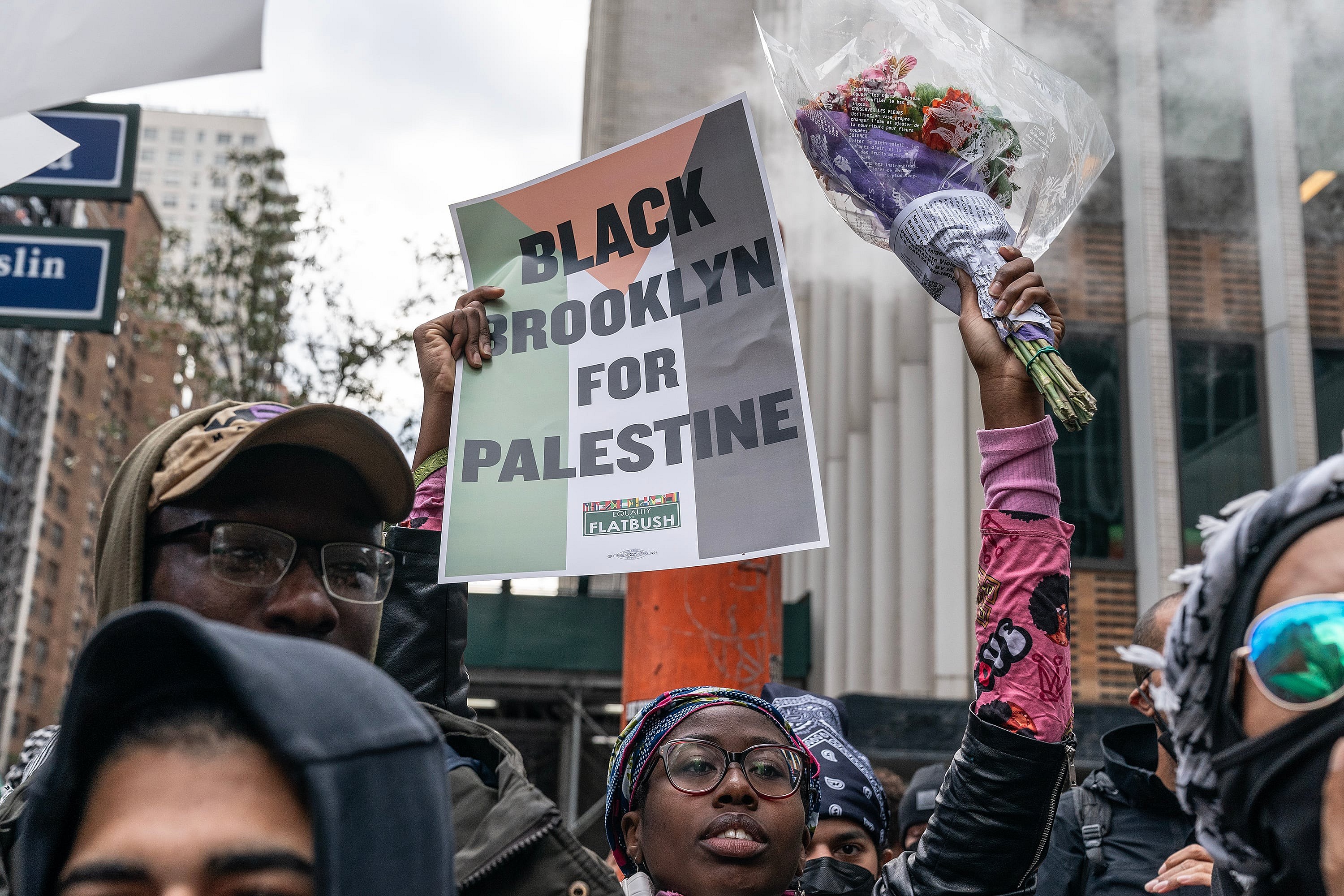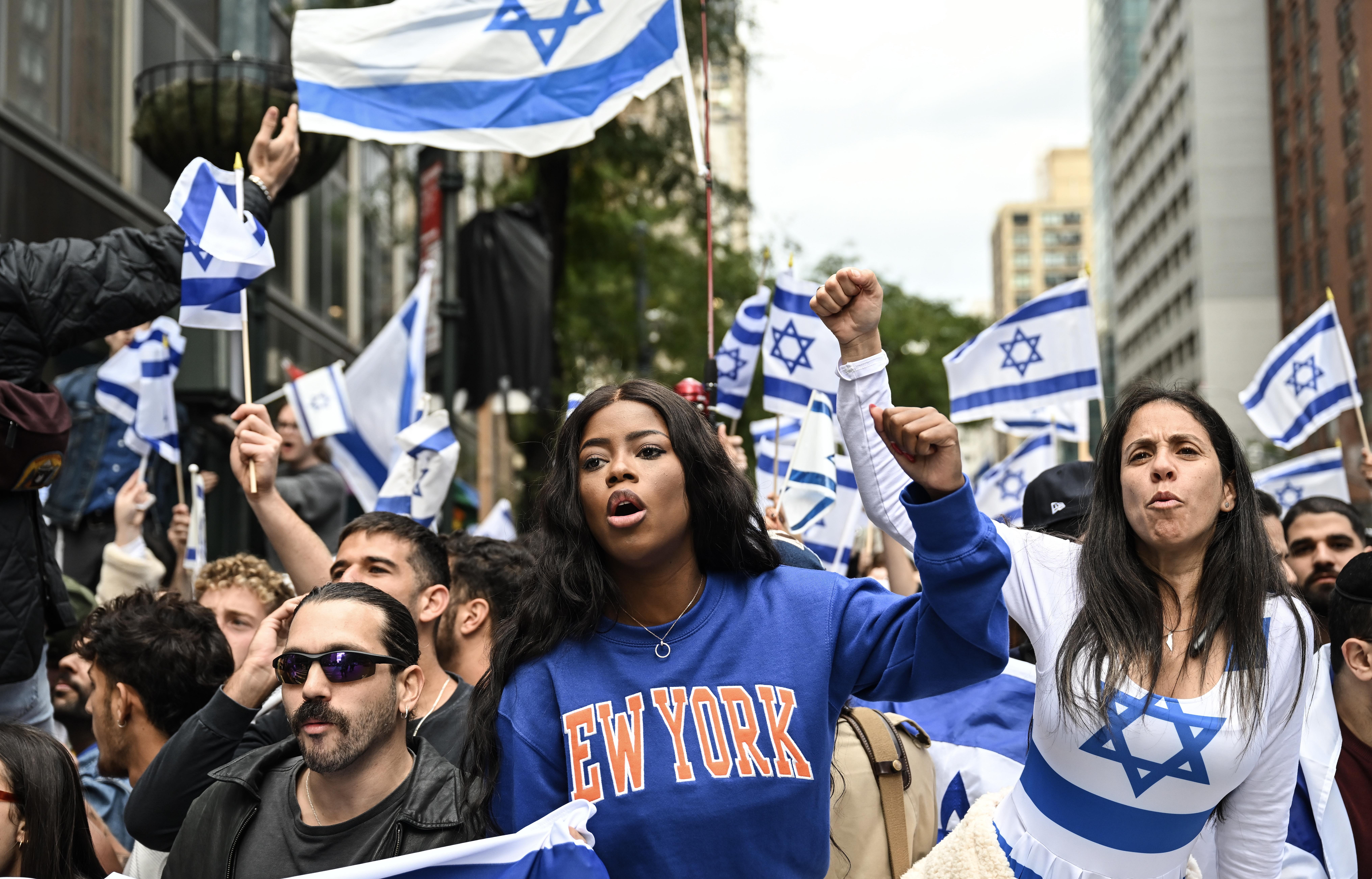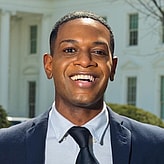As the world reacts to the unprecedented war between Israel and the Hamas militia group in Gaza, many Black Americans have found themselves in the middle of an ongoing political debate.
That debate is happening everywhere, from American city streets to social media timelines.
“Whether you are with the Palestinians or the Israelis, as Black Americans, there is a split,” national security expert and U.S. Army veteran Asha Castleberry-Hernández told theGrio.

She added this isn’t a time for division and that all Black Americans should be “united in condemning these heinous attacks against innocent civilians and working to achieve peace and security for the state of Israel and surrounding areas.”
Castleberry-Hernandez said Black U.S. citizens can serve as a “positive force multiplier” in building a united front on the international stage.
“There are segments of the Black population that have bonded with both the Jewish and Palestinian community through Black internationalism,” said the former State Department adviser.
She continued: “There is a lot of potential to work [we can do] together. For example, Second Gentleman Doug Emhoff’s antisemitism strategy is a strong example of Black America working with the Jewish community on countering antisemitism and islamophobia.”
As Eboni K. Williams, host of “TheGrio with Eboni K. Williams,” pointed out on her show, “The kinship between Black Americans and white-presenting American Jewish people is long and complicated.”
That storied history includes the fact that “Jewish Americans participated and even helped lead work during the civil rights movements of the 1950s and ’60s.”
For Black Americans who may be wondering why the conflict in Israel is something they should be paying attention to, Castleberry-Hernández told theGrio they should be gravely concerned by the carnage in Israel and Gaza that has so far resulted in the deaths of more than 1,000 Israelis and Palestinians.
While giving an update on the Israeli-declared war from the White House State Dining Room on Tuesday, President Joe Biden confirmed that at least 14 American citizens were among innocent civilians – men, women and children – killed while Hamas fired thousands of missiles into Israel from land, sea and air.
“The loss of innocent life is heartbreaking,” said Biden as Vice President Kamala Harris and Secretary of State Antony Blinken stood beside him. “This is what they mean by a ‘human tragedy’ — an atrocity on an appalling scale.”

The surprise attack also put into harm’s way Sen. Cory Booker, D-N.J. – one of only three Black men in the U.S. Senate. Booker, who was in the country for meetings, shared in a video online that he was out jogging when his chief of staff alerted him to seek shelter amid the strikes. Rep. Daniel Goldman, D-N.Y., who is Jewish, was also in Israel at the time.
As the escalating war continues, Castleberry-Hernández, who completed a 30-month deployment in the Middle East, warned that any destabilization in Israel is a threat to U.S. national security and, therefore, the security of Black Americans.
“If Hamas gains from destabilization as a result of this, it enables Shia militias – which are not our friends,” said Castleberry-Hernández. “Hezbollah, Hamas, all link back to Iran. These are the same people we fought in Iraq during Operation Freedom.”
She added, “We don’t want these types of groups to be empowered by a destabilized Israel.”
Castleberry-Hernández explained that similar to the terrorist group ISIS, which was able to take over key areas in Iraq and Syria, Hamas and aligned militia groups could feel emboldened to expand their terror to U.S. soil.
“[ISIS] started to become more external with their activities…they were part of recruiting more foreign fighters in America,” she recalled, including two 2015 ISIS-inspired terrorist attacks, a mass shooting that claimed the lives of 14 people inside a center for the disabled in San Bernardino, California, and attacks on two military facilities that left four Marines dead.
Castleberry-Hernández said it’s important to draw a distinction between Hamas, which was classified by the U.S. as a terrorist group in 1993, and Palestinian civilians in the Gaza region.
She noted that the Palestine Liberation Organization “is not part of the Hamas extremist group. They sometimes don’t get along,” she explained. “There is a set of people within the Palestinian authorities that want to achieve peace with Israel. It’s now more difficult because of Hamas’ existence there in Gaza.”
But as the U.S. and its Western allies unequivocally vow their support for Israel, tensions in the U.S. have been palpable. Over the past few days, Israelis and Palestinians and their supporters have taken to the streets to protest in U.S. cities such as New York, San Francisco, Chicago and Atlanta.

Some of those demonstrations led to clashes that resulted in law enforcement stepping in to separate the two sides.
When theGrio asked White House press secretary Karine Jean-Pierre if the Biden-Harris administration was concerned about demonstrations turning violent, she said, “We’re always going to denounce any act of violence against any community, and, certainly, going to continue to show our support and going to be vigilant on that.”
“We are certainly monitoring, keeping an eye on all of this. And we’re going to continue to support the community here,” she told theGrio.
While the divide over the decades-old Israel-Palestine conflict seems more acute than ever, Castleberry-Hernández said there is still room for Black Americans – and all global citizens – to embrace the nuances.
“That’s part of the two-state solution – where they can coexist peacefully. It’s just that, unfortunately, for quite some time, there’s been slow progression as far as achieving that,” she said.
Castleberry-Hernández, who is the founder of the Diversity in National Security Network, said that no matter where Black Americans may fall on the geopolitical debate, it’s important that more Black Americans “be involved in our foreign policy.”
“We have to be at the table with the president of the United States, providing analysis on how we should move forward with our foreign policy issues like [the Israel conflict] or Ukraine,” she argued.
“It can’t just be [Black Americans] sitting outside. We have to be inside, too, as part of that decision-making.”

Gerren Keith Gaynor is a White House Correspondent and the Managing Editor of Politics at theGrio. He is based in Washington, D.C.
TheGrio is FREE on your TV via Apple TV, Amazon Fire, Roku, and Android TV. Please download theGrio mobile apps today!

